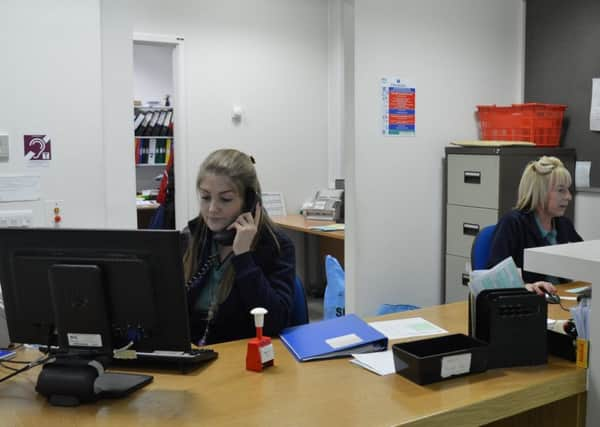New initiative to tackle NHS waiting times


The Elective Access Collaborative Programme will bring together experts from the Scottish Government, NHS Scotland and the Royal Colleges to provide support to health boards in improving the way elective services are arranged.
It will be led by Professor Derek Bell, chairman of the Royal College of Physicians of Edinburgh and Paul Hawkins, chief executive of NHS Fife.
Advertisement
Hide AdAdvertisement
Hide AdProfessor Derek Bell previously led the National Unscheduled Care Improvement Team – which brought Scotland’s A&E waiting times up to the best in the UK.


The initiative will build on the extra £50 million of investment allocated to cut waiting times this year – which is expected to deliver 80,000 extra outpatient appointments and 12,000 extra inpatient appointments by Spring.
Announcing the initiative, Health Secretary Shona Robison said: “We know that any patient waiting for planned surgery or an outpatient appointment wants to be seen as quickly as possible.
“The announcement will build on our earlier injection of funding to reduce waiting lists, by providing the expert support to tranform scheduled care and put the services on a sustainable footing for the future.
Advertisement
Hide AdAdvertisement
Hide Ad“This partnership working between government, the NHS and the profession has already achieved some excellent results in unscheduled care – and we are keen to replicate this successful approach.


“We are at a crucial transition stage in our reforms of the health service – the much called-for shift in resources to primary, community and social care services is beginning to take effect, but this will take time to deliver better and more appropriate alternatives to acute care.
“However, it is still crucial that patients are seen in a timely manner and all boards have been asked to produce recovery plans for their elective care services. After which we expect the reforms to elective care to deliver a more sustainable and effective service to patients.”
Professor Derek Bell said: “Demand for acute care services is outstripping the capacity to deliver services in virtually all developed health services across the world. Indeed all UK health systems are struggling to meet this growing demand.
Advertisement
Hide AdAdvertisement
Hide Ad“This challenge, when combined with UK-wide financial restrictions, has led to performance problems in emergency and elective acute care. Extra investment will help, but this alone will not make our care system sustainable, particularly given the significant future growth in the elderly population and the associated diseases and implications.
“In Scotland over the last two years, overall performance in emergency care services has been consistently better than elsewhere in the UK. This progress coincides with the ‘6 Essential Actions to Improving Unscheduled Care’, jointly commissioned by the Scottish Government and professional bodies like the Academy of Royal Colleges and other key partners, and which appears to be showing patient benefit.”
Professor Bell added: “We are convinced that a similar Elective Access Collaborative Programme – developed jointly by the Scottish Government and the Academy, and based on and working directly with the 6 Essential Actions model – would address the significant and growing pressures in elective and diagnostic services, add value to healthcare and improve patient care.”